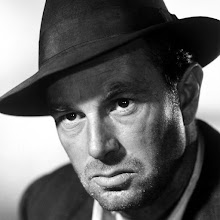Repent! Pacatosilor! Pentru ca astazi un singur pacat aveti. Azi. Acum. Nu ati citit inca aceasta dezbatere, de mai jos. Ambele argumente sunt elegant facute, fara a pierde insa din taiosenia ideii.
Bineintzeles ca eu tin cu ursul si ca nu mi se pare suficient de tare un argument care se bazeaza, printre altele, pe suferintele bietului Iov. S
Anyway: oricat de zaticnitzi am fi de-o parte sau de alta a baricadei stiinta vs religie, va asteapta doua texte inevitabile, indispensabile, irefutabile si irevocabile.
Cititi si tanjiti. Dupa putirinta de a scrie si argumenta la fel.
Mama lor de britanici... Articulati, eleganti, inteligenti, cu vorbele la purtator
:( :bow:
Courtesy of The Guardian (si vreo doua trei hop-hop-uri din link in link, din blog in blog; din pacate, le-am inchis si nu mai stiu de unde am plecat, sa adaug multumirile si sursei blogoreice).
====================
Is religion a threat to rationality and science?
Prof Daniel Dennett and Lord Winston present their arguments ahead of tonight's public debate
Daniel Dennett and Robert Winston
Tuesday April 22, 2008
The Guardian
Yes, says Prof Daniel Dennett
If religion isn't the greatest threat to rationality and scientific progress, what is? Perhaps alcohol, or television, or addictive video games. But although each of these scourges - mixed blessings, in fact - has the power to overwhelm our best judgment and cloud our critical faculties, religion has a feature of that none of them can boast: it doesn't just disable, it honours the disability. People are revered for their capacity to live in a dream world, to shield their minds from factual knowledge and make the major decisions of their lives by consulting voices in their heads that they call forth by rituals designed to intoxicate them.
It used to be the case that we tended to excuse drunk drivers when they crashed because they weren't entirely in control of their faculties at the time, but now we have wisely inverted that judgment, holding drunk drivers doubly culpable for putting themselves in that irresponsible position in the first place. It is high time we inverted the public attitude about religion as well, finding all socially destructive acts of religious passion shameful, not honourable, and holding those who abet them - the preachers and other apologists for religious zeal - as culpable as the bartenders and negligent hosts who usher dangerous drivers on to the highways. Our motto should be: Friends don't let friends steer their lives by religion.
Right now, Sayed Parwez Kambakhsh, a young student, resides on death row in Afghanistan, sentenced to execution for committing blasphemy. Imagine! We're living in the 21st century, and in "liberated" Afghanistan (not Taliban Afghanistan) blasphemy is still a capital crime. Most of the rest of the world is tongue-tied, unwilling to tell those bent on carrying out this barbaric sentence that they are simply wrong, and should not thus humiliate themselves and their traditions. Where are the peaceful demonstrations of protest? Are people unwilling to hurt the feelings of Muslims? We are quick to condemn other outrages, but religious passion, genuine or feigned, shields people from the moral judgments of their fellow human beings, judgments to which we should all alike be subject.
There is an unbalance in the framing of this resolution, and Robert Winston has the worst of it. He must try to allay a host of concerns, an unending task, while - as everyone knows all too well - in a single cataclysmic day my side could be proven by one fanatical act, not that anyone would be left to cheer my victory. Not just rationality and scientific progress, but just about everything else we hold dear could be laid waste by a single massively deluded "sacramental" act. True, you don't have to be religious to be crazy, but it helps. Indeed, if you are religious, you don't have to be crazy in the medically certifiable sense in order to do massively crazy things. And - this is the worst of it - religious faith can give people a sort of hyperbolic confidence, an utter unconcern about whether they might be making a mistake, that enables acts of inhumanity that would otherwise be unthinkable.
This imperviousness to reason is, I think, the property that we should most fear in religion. Other institutions or traditions may encourage a certain amount of irrationality - think of the wild abandon that is often appreciated in sports or art - but only religion demands it as a sacred duty. This might not matter if the activities that composed religion were somewhat insulated from the rest of the world the way they are in sports and art. Then we could treat religious allegiances the way we treat differences in taste: if you have a taste for kick boxing or heavy metal bands, that's your business. Knock yourself out, as we say, it's only a game. Not so with religion. Its arena includes not just the participants but all of life on the planet. Given that, it's troubling to note how avidly some people engage in deliberate make-believe in order to execute the prescribed duties.
The better is enemy of the best: religion may make many people better, but it is preventing them from being as good as they could be. If only we could transfer all that respect, loyalty and intense devotion from an imaginary being - God - to something real: the wonderful world of goodness we and our ancestors have made, and of which we are now the stewards.
· Professor Daniel Dennett is director of the Centre for Cognitive Studies, Tufts University
No, says Lord Winston
Daniel Dennett would be unlikely to place a stake alongside Blaise Pascal, whose famous wager runs: "You cannot lose by professing belief in God - if He does not exist you lose nothing, and if He does exist, you will be rewarded in the afterlife." Dennett argues that it is better to live as if there is no God, attempting to make the world a rational and better place. He points out that it is costly building cathedrals and that churchgoing is a massive waste of time. An atheist will lose nothing if God does not exist - his or her memorial will be good deeds. And if there is a benevolent God, Dennett will find himself judged by the Almighty on his merits, not because of the disbelief he professes.
The problem with his interesting views of the possible evolutionary basis of religious belief is that he seems unable to treat the beliefs and feelings of believers seriously. Might not God disapprove of this much more? Like many evangelical preachers, he repeatedly seems to claim to be open to the sincerely held views of others. Yet, in Dennett's world, humans are divided into "brights" or believers - and if you are not a "bright", you disagree with his point of view because you are intellectually inferior, closed-minded or too scared.
To some extent, he falls into a similar trap to Dawkins. He feels he knows about religions but seems to have done too little research; a number of his points - for example, about Jewish attitudes or Muslim practices - seem to show a lack of serious scholarship.
Dennett, like Dawkins, is affronted by the "fact" that moderate religious people have done little to curb the excesses of the extremists of their own traditions. Who does he define as an extremist? If, as a Jew, I decide to adhere to totally irrational dietary laws or bizarrely not travel on a bus on Saturday, does that make me an extremist? If I go further and wear a kippa on my head and build an eruv around the part of London in which I live, is that an unacceptable excess? Or is he arguing against dangerous violence, which is condemned by every responsible religious Jew?
Religion is built into human consciousness and there is plentiful evidence of it being a cohesive force. Apart from the survival of our prehistoric ancestors, in recent times there are powerful examples of how a notion of the transcendental has spurred humans on in desperate situations. Viktor Frankl, in the midst of the extreme deprivation, dehumanisation and despair of Auschwitz observes how, in his assessment, only those with some spirituality - not necessarily a belief in God - survived the depravity of the camp.
Dennett seems to believe science is "the truth". Like many of my brilliant scientific colleagues, he conveys the notion that science is about a kind of certainty. For example, in his book Breaking the Spell, he quotes Eva Jablonka in support of his views on memes. He forgets that she challenges the very essence of Dawkins's view of evolution - a view Dennett obviously passionately supports.
Perhaps he might care to re-read the book of Job. Throughout most of this deeply mysterious and spiritual book, Job patiently suffers but essentially is steadfast in his faith in God's justice. But finally beyond provocation, he rails against the irrationality of God's punishment. At the very end of the story, God appears out of the whirlwind saying: "Who is this that darkeneth counsel by words without knowledge?" God asks Job where he was when He laid the foundations of the Earth? Do we understand where we come from, where we are going, or what lies beyond our planet?
The problem is that scientists now too frequently believe we have the answers to these questions, and hence the mysteries of life. But, oddly, the more we use science to explore nature, the more we find things we do not understand and cannot explain. In reality, both religion and science are expressions of man's uncertainty. Perhaps the paradox is that certainty, whether it be in science or religion, is dangerous. The danger of Dennett's relatively gentle brand of certainty is that it increases polarisation in our society. With inflexible positions on both sides, certainty surely is the biggest threat to rationality, and to science.
· Lord Winston is emeritus professor of fertility studies, Imperial College London
· The debate on religion versus science will take place tonight at the British Council. This is the finale in the Rethink education public debate series, hosted by the thinktank Agora and Education Guardian. For details go to www.agora-education.org
joi, 1 mai 2008
Cititi!
Abonați-vă la:
Postare comentarii (Atom)





2 comentarii:
Dennett a avut acum cativa ani (2 sau 3) o conferinta in Buc. un tip cu un simt academic al umorului
"In reality, both religion and science are expressions of man's uncertainty."
Da, doar ca stiinta cauta sa scape de incertitudini, in timp ce religia nici nu-si da seama de ele.
Trimiteți un comentariu